A full year of co-determination: who are the new students in the University Council?
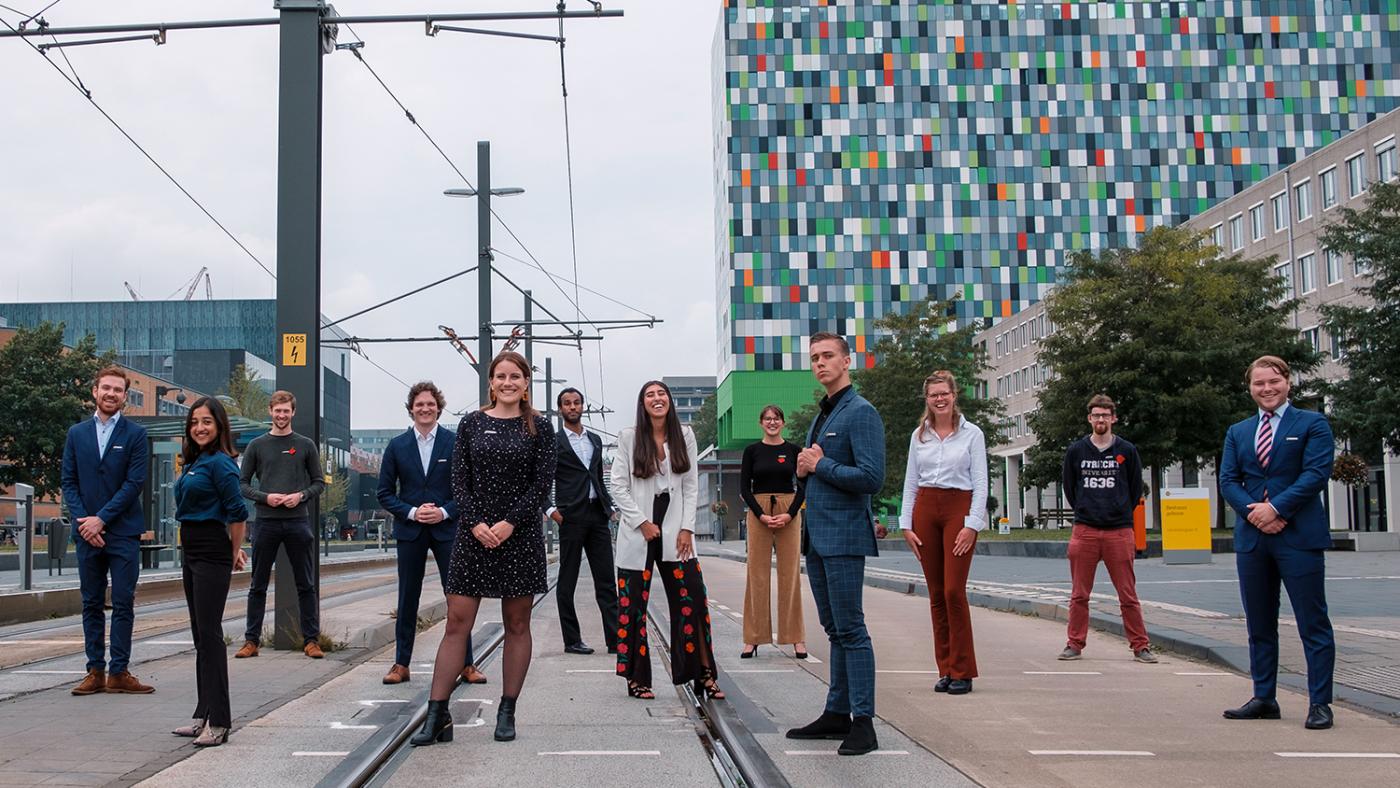
Photos by Wieke Eefting – council members appear in alphabetical order
Together with twelve employees, the students of the University Council defend the interests of everyone who works or studies at Utrecht University. To do so, they often pause their studies for a year. The co-determination members put subjects on the agenda that they feel are important for their constituency, have a say in the university’s policies, and advise the university about them. They also have the right of assent on a number of topics, such as the UU’s finances.
Each year, the students in the council make way for new student members; the employees in the council fulfil their roles for two years, meaning elections for those seats won’t be held until next year. This year, two international students are on the council, too. They’re both taking Dutch classes, and can understand spoken Dutch. For that reason, Dutch will be spoken during meetings with the Executive Board and in meetings with the staff members, while the international members speak English. In the student member meetings, everyone will speak English.
Time to get to know them: who are the students who’ll try to keep the Executive Board on their toes this year? What do they think about themes like workloads in higher education, student wellbeing, the re-sit policies, and the Englification of education? What are the things you can wake them up for, and what are their guilty pleasures?
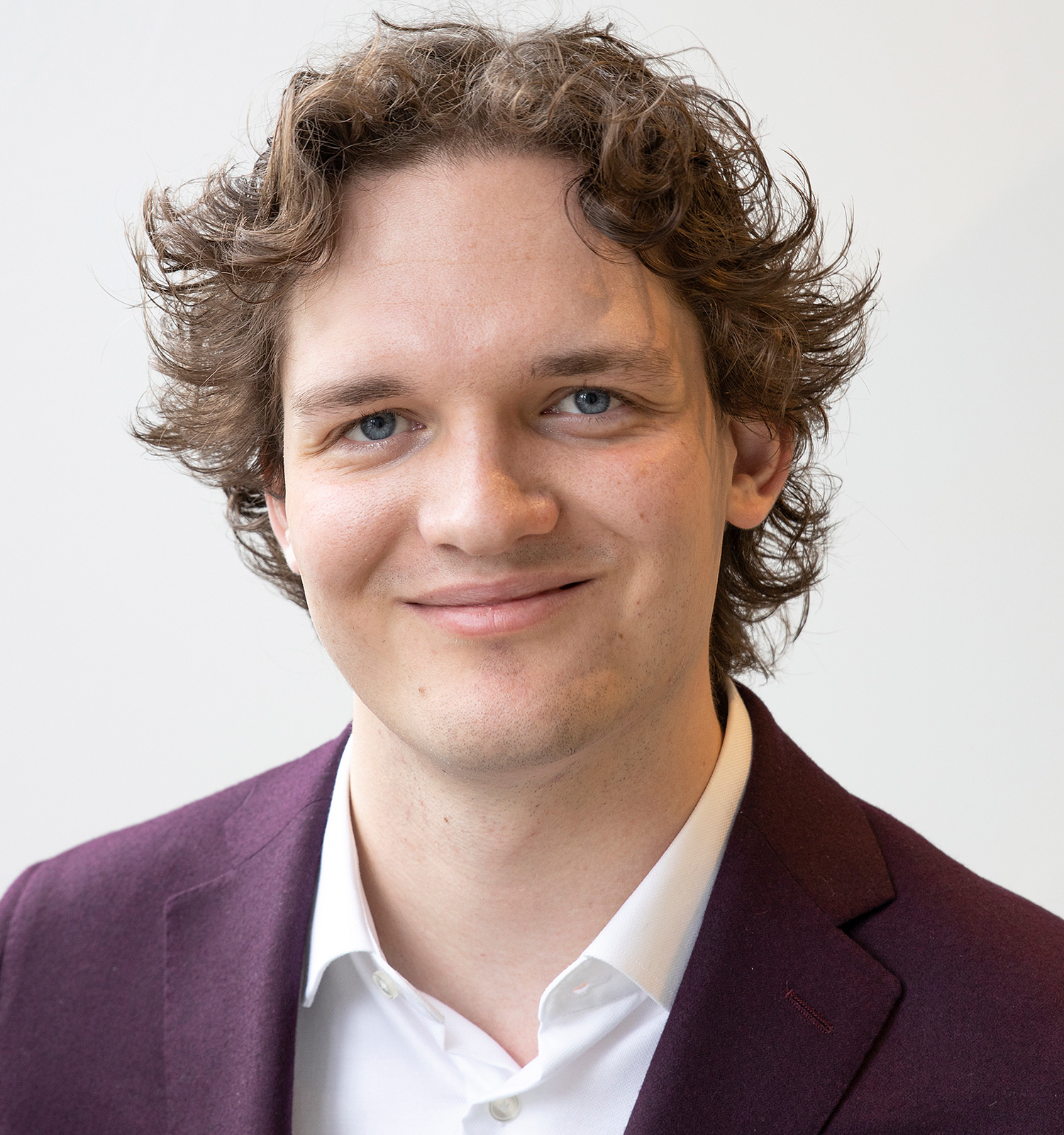
If it were up to Marijn Baars (23, Lijst Vuur), the UU would focus less on marketing (‘research university is a pleonasm’). Instead, it should focus more on offering students and employees options for self-development in education, research, and extracurricular activities at the UU. This year, he will also fight for a better, more accessible organisation of co-determination at the university.
Baars has just graduated from his Master’s in Dutch studies, and is a member of student association Biton. He’s long been active for study association Awater, in which he participated in multiple committees, and also spent a year as a board member. He’s also done a year in the Humanities faculty council. When he’s got free time, he likes to play the guitar, and likes to read books by Terry Pratchett, Salman Rushdie, and Richard Dawkins. And his guilty pleasure? “Watching magicians on YouTube.”
He grew up in Zutphen: “A beautiful old city, like Utrecht.” Hoog Catharijne is by far his least favourite spot in Utrecht, but Broodje Carlo, sandwich place Bambi, and favourite café Weerbericht more than make up for that.
If he had to choose between ‘polderen’ (Dutch model for consensus decision-making) or activism, he’d choose a mix of both. “I think that’s best. Knowing how the system works, and changing it from the inside. That often happens at the meeting table, but it also needs activist pressure sometimes. The two complement each other.”
The UU should focus less on marketing.
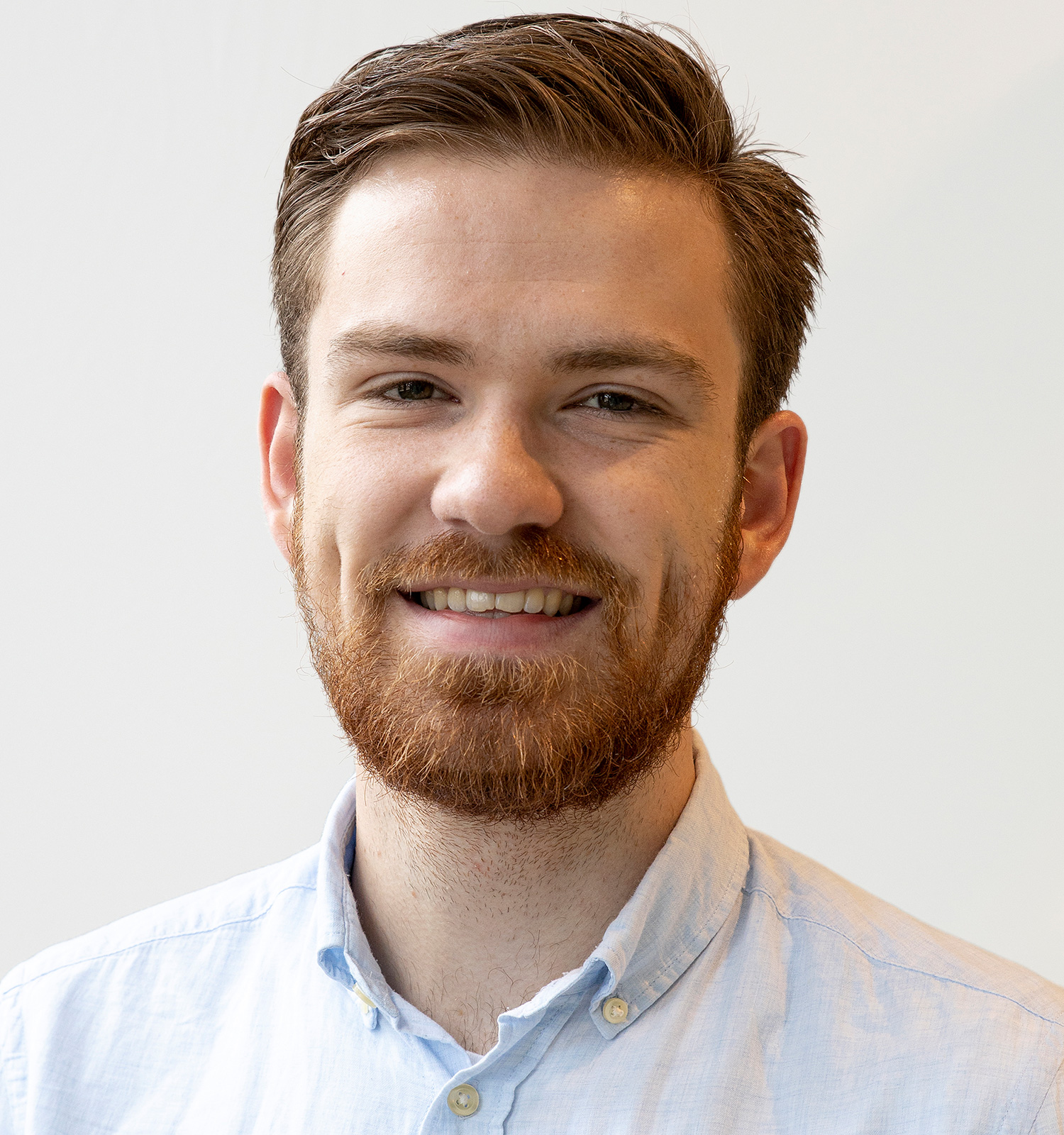
If you ask Tom Buster (19, Lijst Vuur) where he wants to be in 20 years, he says it’d be on the chair currently occupied by Speaker of the House Khadija Arib. Buster, who grew up in Eindhoven, is a third-year student of Pedagogical Sciences, but has only accrued around 1.5 years’ worth of ECTS. “That’s because of my board year for Study Association PAP last year,” he says. Next to his studies, he’s an administrative assistant at the UMC Utrecht, entertainment leader at a campsite, and a member of Dwars: the youth division for political party GroenLinks. He was also a board member in the co-determination for the Faculty of Social Sciences.
This year in the University Council, he mainly wants to fight for student wellbeing. “When all students feel good and powerful, the UU can achieve even more, and truly flourish. I want to help shift the focus to student successes, rather than study successes.” If he has to choose between ‘polderen’ and activism, he chooses ‘polderen’: “When you reach a decision through solid negotiations, in which all parties are equal, everyone will support it.”
Buster absolutely loathes liverwurst, but you can wake him up at any time for a good risotto or an episode of TV show Wie is de Mol?. His guilty pleasure is the ‘Jumbo frozen ravioli with four cheeses’: “It’s the perfect comfort food for when you can’t eat until late at night after a busy day.”
I want to help shift the focus to student successes, rather than study successes.
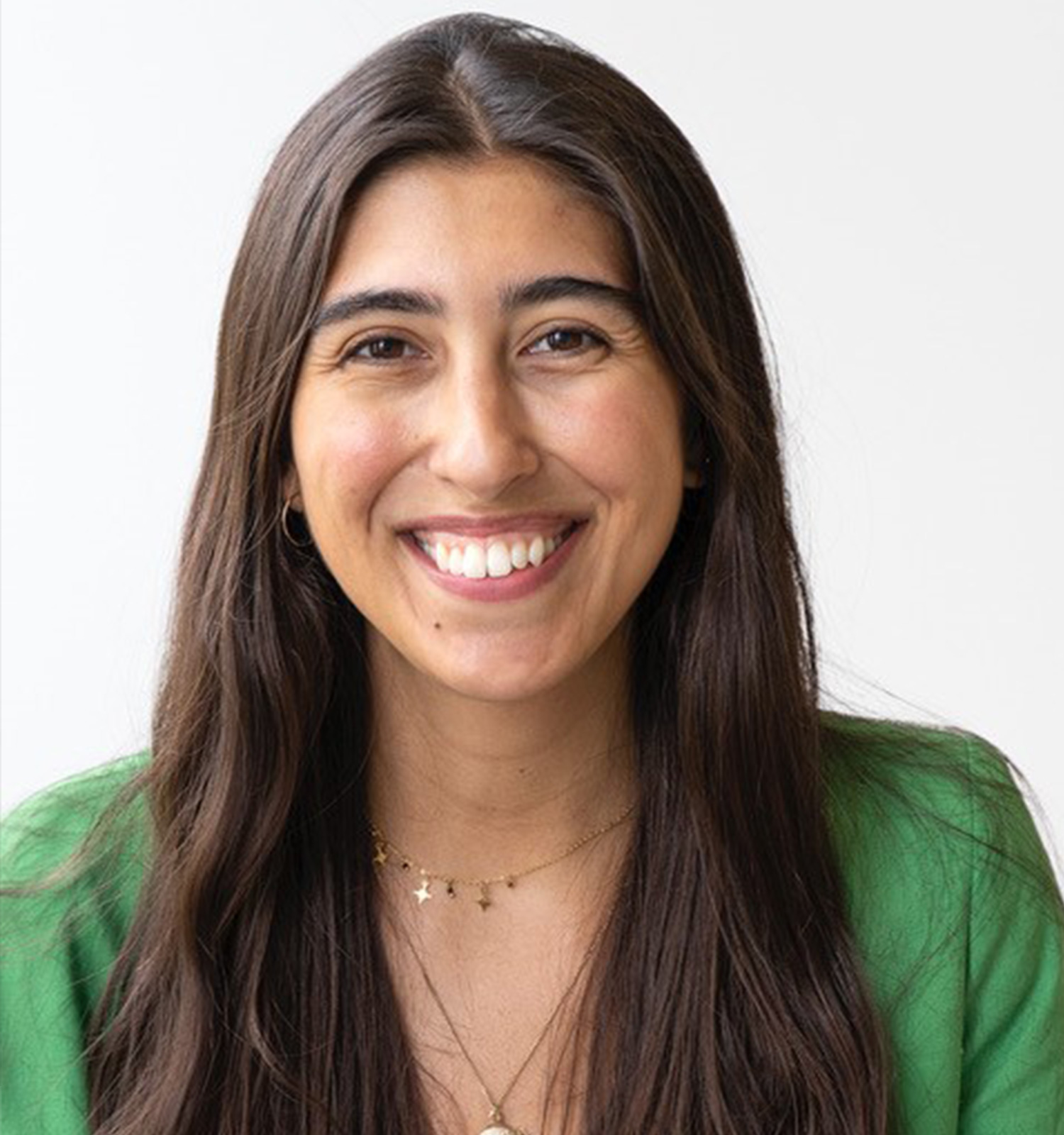
Andreia Fernandes Duque (24, Lijst Vuur) grew up in Coimbra, Portugal. She’s been living in Utrecht for a year now, where she’s doing a Master’s in Economic Policy. She can’t name any place in Utrecht she doesn’t like, but she has plenty of ideas about what could be improved at the UU. She mainly focuses on internationalisation. She wants to ensure, for instance, that all official policy documents are written in both Dutch and English, so international students are better equipped to participate in co-determination. She says the English courses that are now available to students and teachers are a good step. “It benefits the quality of education,” she says. Aside from English courses, she also wants to make easily-accessible Dutch courses for international students happen.
She thinks the best thing about the UU are the diverse students, the large number of student organisations, and the UU’s commitment to sustainability. She thinks the area around the Nieuwstraat is the most beautiful neighbourhood in Utrecht. “That’s where I spent my first three months in the Netherlands, with a warm, welcoming Dutch family. It’s gorgeous there, especially in autumn.”
Next to her studies, Duque is active for study association ECU’92 and student basketball association SBU, where she’s a member of the Ladies 3 team. For a cup of coffee, she likes to visit ‘hipster café’ Koffie Leute Brauhaus at the Westerkade, and her guilty pleasure is the Tony’s Chocolonely caramel sea salt chocolate bar.
All official policy documents should be written in both Dutch and English.
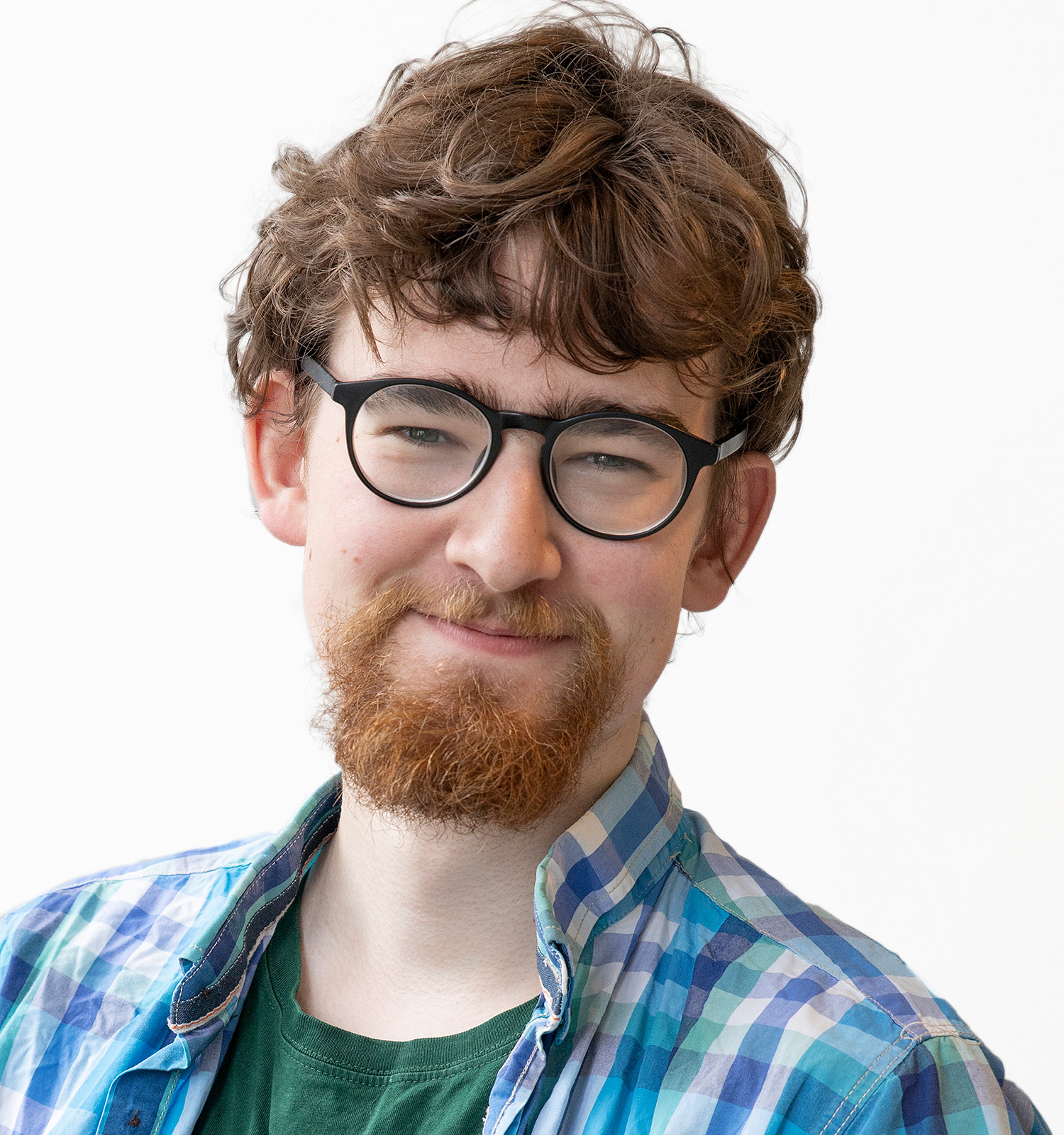
Freek Geerligs (22, UUinActie) grew up close to Utrecht: in Amersfoort. He’s doing a Master’s in Mathematical Sciences, and is an active member of study association A-Eskwadraat. He’s not new on the co-determination scene: he was a member of the Programme and Advice Committee for the Bachelor of Mathematics, as well as of the Programme committee of the Faculty of Sciences. Because the ‘maths library’, the Botanical Gardens, and the A-Eskwadraat room are all in De Uithof, he prefers De Uithof over the city centre. It’s an opinion shared by very few other council members.
Geerlings likes to adopt an activist stance, but doesn’t think that that’s the opposite of the ‘polder’ model. As university council member, he wants to tackle the re-sit policy, among other things. He’s also a proponent of a better power distribution within the university: “Sometimes, the UU can feel very hierarchical. It could be so much more transparent and democratic. The Executive Board doesn’t always justify everything properly to the co-determination, for example. They use the policy space: a bag of 15 million euros in cash that they can spend how they like. I want to make that figure lower, and with more restrictions.”
The nicest thing about the UU, in his opinion, is that so many people look out for each other. “With the lockdown, I’ve noticed how important it is for me to regularly chat with others about studies, or just about how things are going. The university brings people together who share the same interests, but also with differing perspectives, and I like that.”
The UU can feel very hierarchical. It could be so much more transparent and democratic.
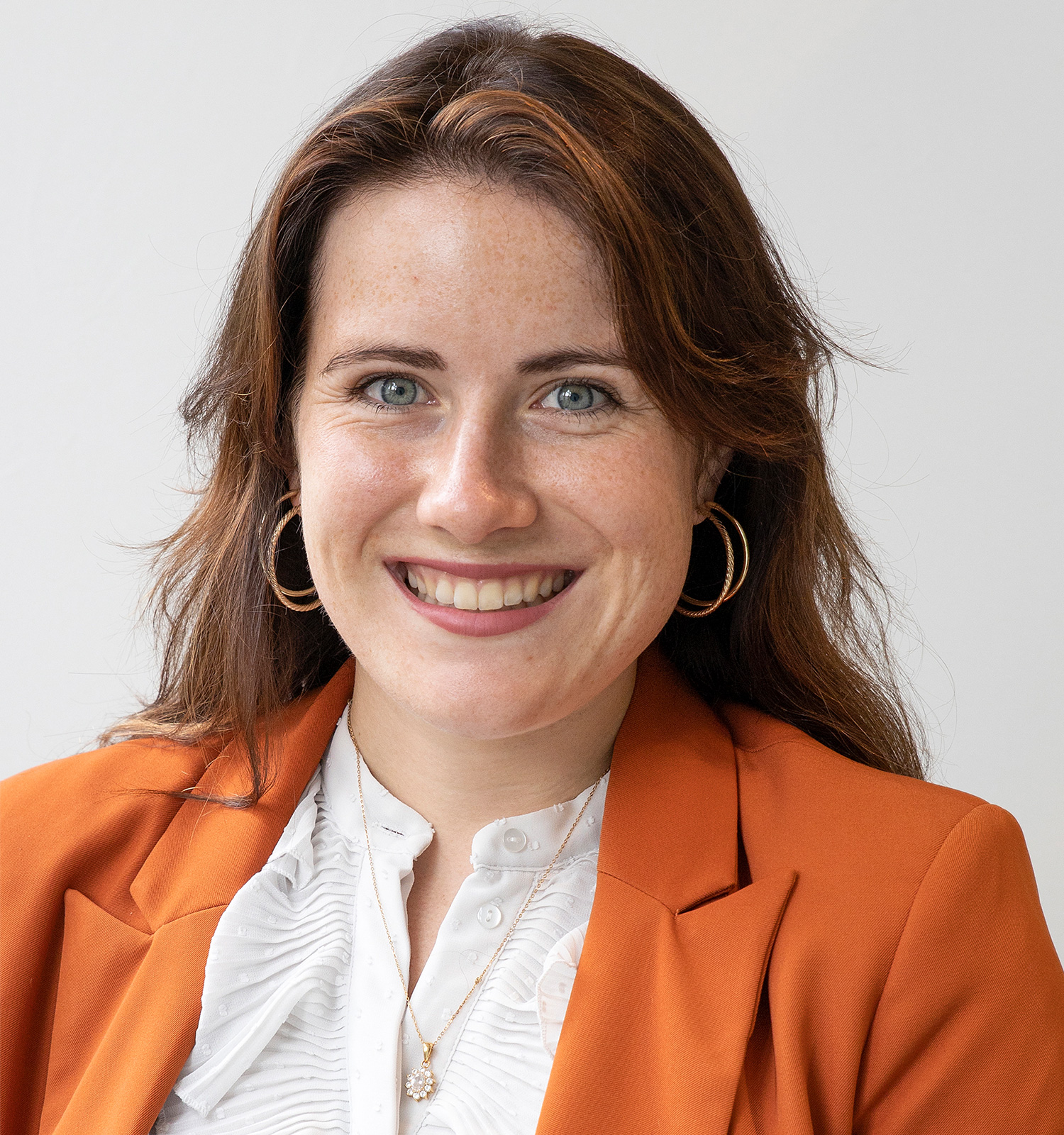
Sya Huijskens (23, PvdUS) grew up in Breda, and has been living in Utrecht for 3.5 years. She’s a member of sorority UVSV, sports association Odysseus, and study association Contact. She’s a Bachelor student of Communication and Information Sciences, and feels that ‘clearer communication’ is a point of improvement for the UU. She does think it’s good that the UU is the broadest university of the Netherlands, and that there’s so much knowledge and so many possibilities in so many disciplines.
In the University Council, she mainly occupies herself with the effect of the corona crisis on education, student life, and student wellbeing. “This year, I want to ensure education can take place ‘like normal’ (in person) as quickly as possible, and that student life returns to normal where possible.” Huijskens dreams of a world in which we’re allowed to be closer to each other than 1.5-metre distance once more, because living in isolation is not her thing at all.
Next to her studies, Huijskens was president of the Education committee for study association Contact, and she was a member of the annual committee of inquiry of the National Chamber of Associations. She can often be found in the Jans Bar and the Rum Club, and her guilty pleasure is watching Real Housewives of Beverly Hills. The thing she likes least: “My college debt, and the bicycle depot in Kanaleneiland.”
I want to ensure education can take place the normal way, in person, as quickly as possible.
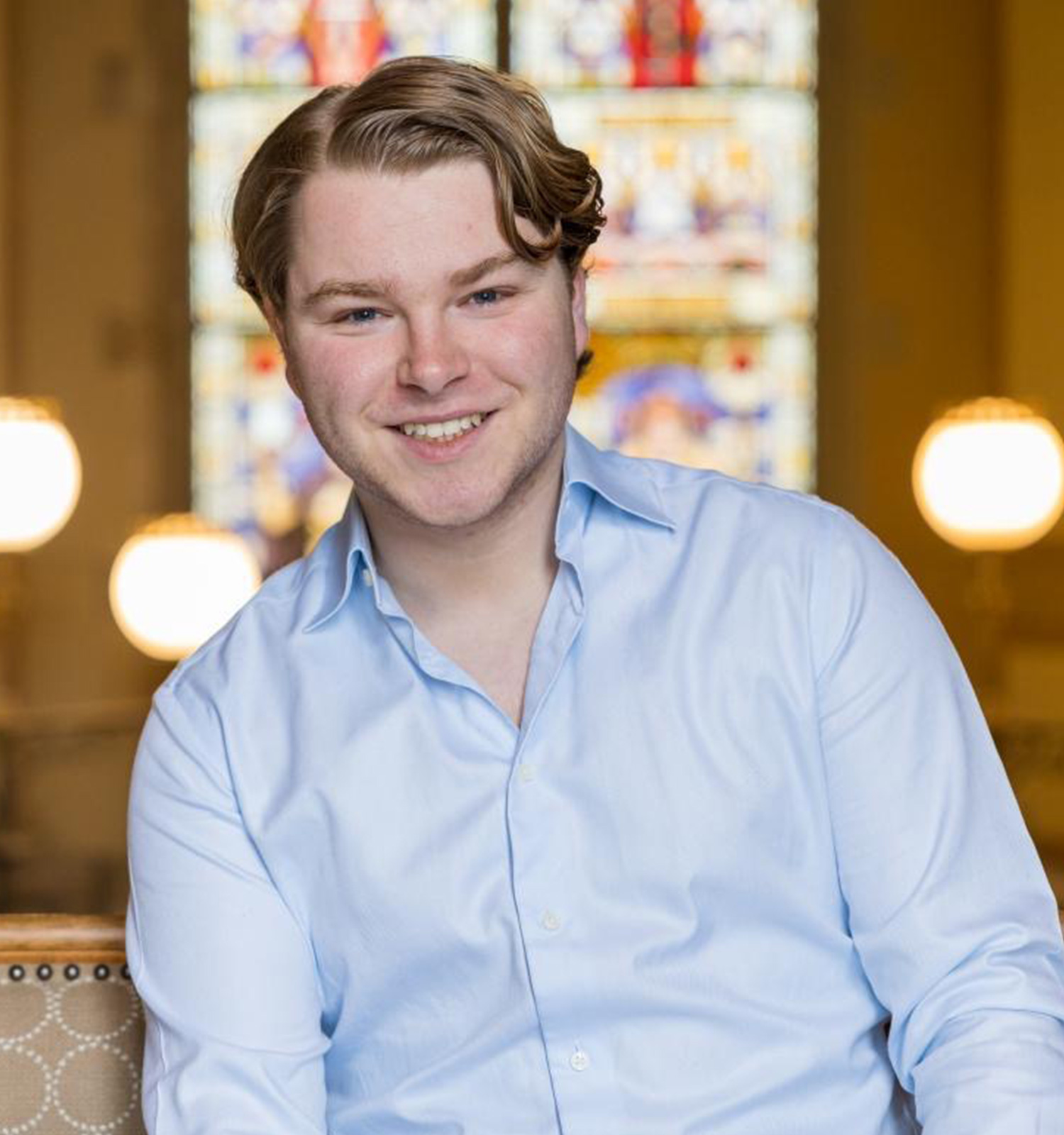 [personal photo]
[personal photo]
Pepijn Lapidaire (20, PvdUS) is almost afraid to say it, but sometimes, he listens to German metal band Rammstein. Lapidaire grew up in Naarden, and he’s a member of the USC fraternity. Next to his History studies, he plays hockey with SCHC in Bilthoven.
He doesn’t have previous experience in co-determination. Completely in line with the vision of his party, PvdUS, he will fight for students who, next to their studies, lead an ‘active’ life, for instance as a member of a student organisation. “In my opinion, the UU could do more to make a stand for all of student life,” he says. He wants the university’s new Strategic Plan to reflect the interests of active students. The best thing about the UU and Utrecht in general, he says, are the diversity and the quiet atmosphere.
Lapidaire detests a lack of sleep, but you can always wake him up for a great holiday. He strongly prefers the city centre over De Uithof, but doesn’t care at all about Hoog Catharijne.
The UU could do more to make a stand for all of student life.
 [personal photo]
[personal photo]
UCU student Nandika Mogha (19, Lijst Vuur) grew up in New Delhi, India. She’s been living in Utrecht for a little over a year now. Her favourite places in town are the Dom square, the Street Food Club, and the Fort at Rijnauwen. Mogha is studying Liberal Arts & Sciences, and next to her studies, she does rock climbing, dancing, painting, writing, and yoga.
In twenty years, she’d like to live carbon-negative, in an artsy, minimalist home. This council year, she’s fighting for sustainability. “We have to make real news, a critical sound, and hard facts available to everyone. We need ideas that don’t just provide short-term solutions, but ones that will work in the distant future, too.” If Mogha had to choose between ‘polderen’ and activism, she’d choose ‘intelligent, informed activism’.
What she likes best about the UU is mainly the acceptance she’s experienced as an international student. “I wasn’t just encouraged to follow my heart, the UU has accommodated me in other ways as well. I think that says a lot about the UU’s willingness to ensure progressive world citizenship.”
Mogha detests hypocrisy in debates, people who lack self-reflection, and people who don’t separate their trash. Her biggest guilty pleasure is eating mountains of vegan junk food.
We need ideas that don’t just provide short-term solutions, but ones that will work in the distant future, too.
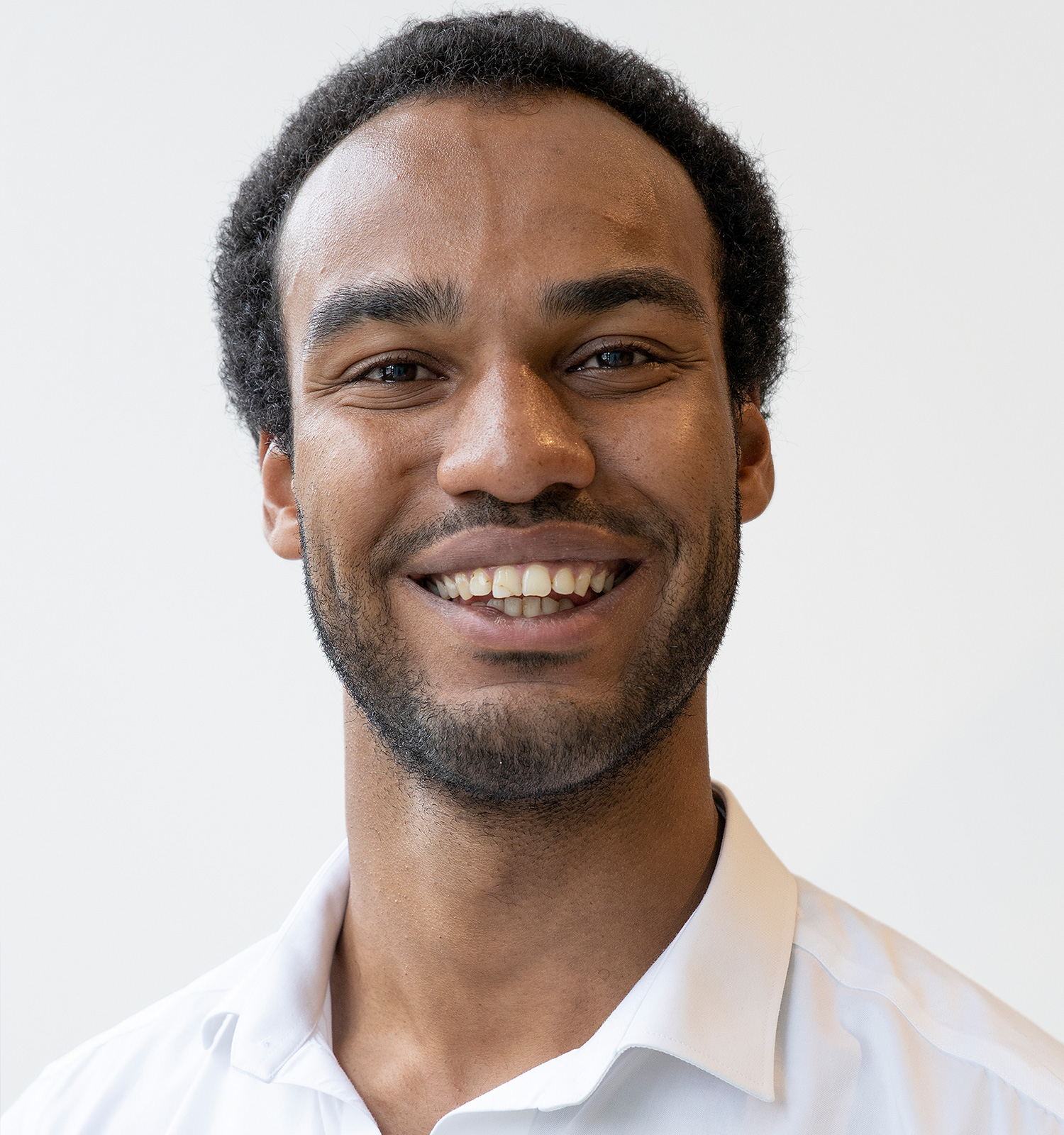
Biology student Roman Monte (24, Lijst Vuur) will focus on sustainable policies in UU housing this year. This doesn’t just mean making the current UU buildings more sustainable, but also making long-term plans about housing. “Buildings that are sustainable now, may not be sustainable in the future according to the standards of that time.” Difficult, necessary decisions have to be made in this area that might face resistance, if they’re not substantiated and communicated well. But it’s not impossible, so it’s a challenge I want to take on.”
Monte is not new to co-determination: he was student president for the Faculty of Sciences council. He’s also an active member of study association UBV, and he’s an enthusiastic pole-vaulter. In fact, he’s in the national top-five in that sport. He also plays guitar, and likes to cook. His guilty pleasure: dancing alone in his room, and mixing coffee with cocoa when he arrives at the UU after skipping breakfast. He’s trying to become a vegetarian, but until he’s succeeded, you can wake him up in the middle of the night for lamb chops. Or crème brûlée, if it has to be vegetarian.
Monte has some very specific favourite spots in the city, like the hidden park near the windmill Rijn en Zon, and the Keizersgracht. The Smeebrug in the evenings is another favourite, “after, or before, having a drink at ‘t Oude Pothuys”. And his least favourite spots in Utrecht? “All the places I’ve bumped my head. I’m kind of tall.”
Buildings that are sustainable now, may not be sustainable in the future according to the standards of that time.
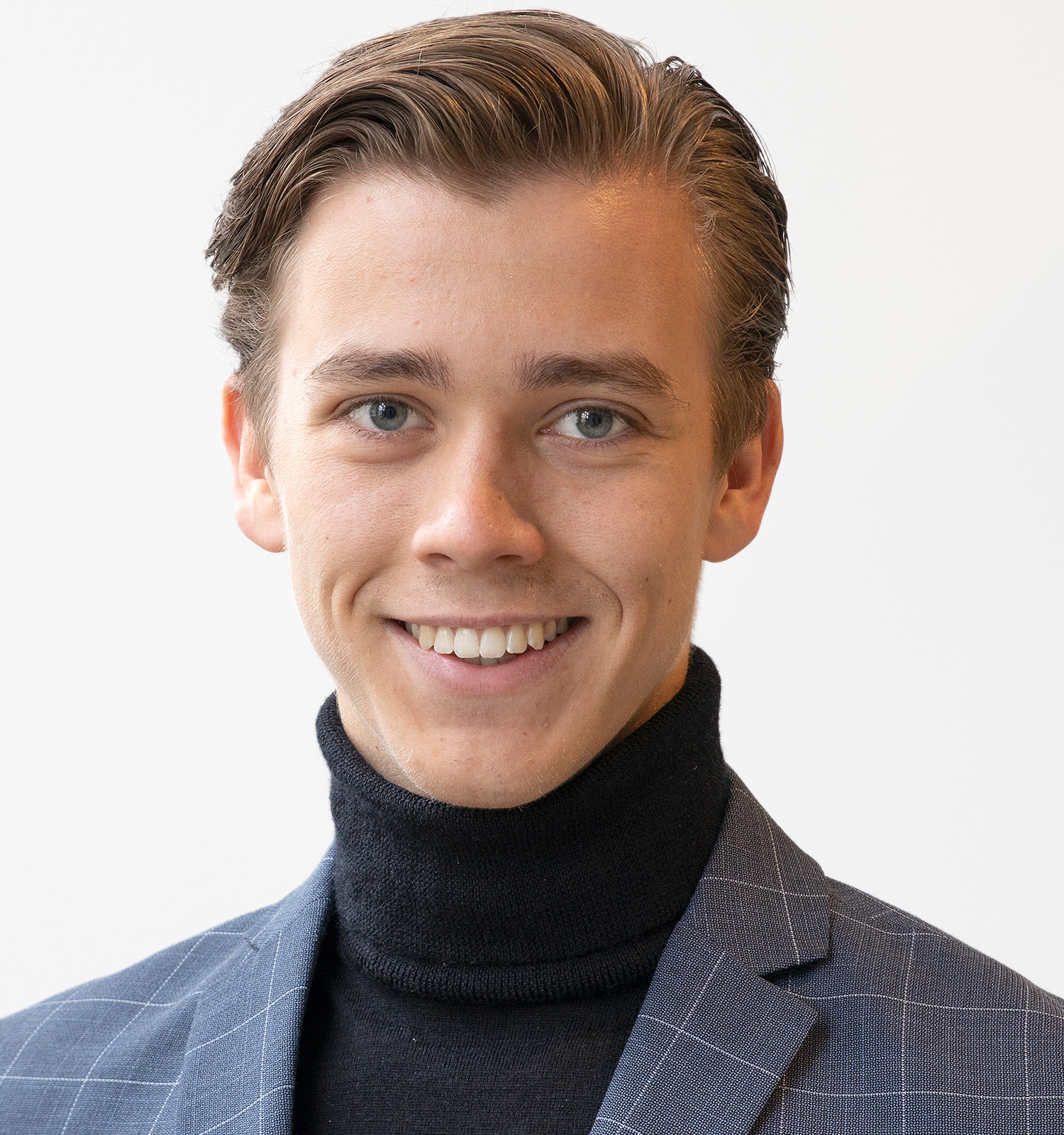
Kick Rechsteiner (19, De Vrije Student) is putting his Law studies on hold this year for the University Council, in which he’s the only representative of the party De Vrije Student. One important point the party fights for is making flexible studying [link in Dutch] possible. “And from 2023 on, that’ll be possible for all students,” he says with pride.
A trickier point, Rechsteiner says, is forcing all canteens to make all food vegetarian. “I’m a big proponent of sustainability, but this is a grey area. I want to safeguard students’ right to choose. That means dictating a certain diet is undesirable. I also think that free discourse is of vital importance at the university: no one should have to censor themselves because their opinion is different from the norm.”
Specific things Rechsteiner hopes to convince the rest of the University Council of, include implementing a new distinction for graduates [link in Dutch], battling ‘unnecessary Englification’, safeguarding privacy, and implementing ‘a fair re-sit policy’.
Next to his studies, Rechsteiner is active for the JOVD, the youth division of political party VVD. His guilty pleasure is watching action films, and you can wake him up for a good UFC event. “That has actually happened multiple times, because the big fights are always broadcasted in the evenings in the United States.” He fills the remainder of his free time by reading books about philosophy and psychology, by authors such as Nietzsche, Andrew Huberman, and Jung.
If he had to choose between ‘polderen’ and activism, he doesn’t hesitate before saying ‘polderen’. “I don’t understand why anyone would choose activism. Polderen is the foundation of Dutch democracy. One of my goals is that, when I look back on my time in the University Council in a year’s time, I’ve realised concrete changes for our constituency and for students in general. If I have to make concessions to do so, I gladly will.”
Free discourse is of vital importance at the university: no one should have to censor themselves because their opinion is different from the norm.
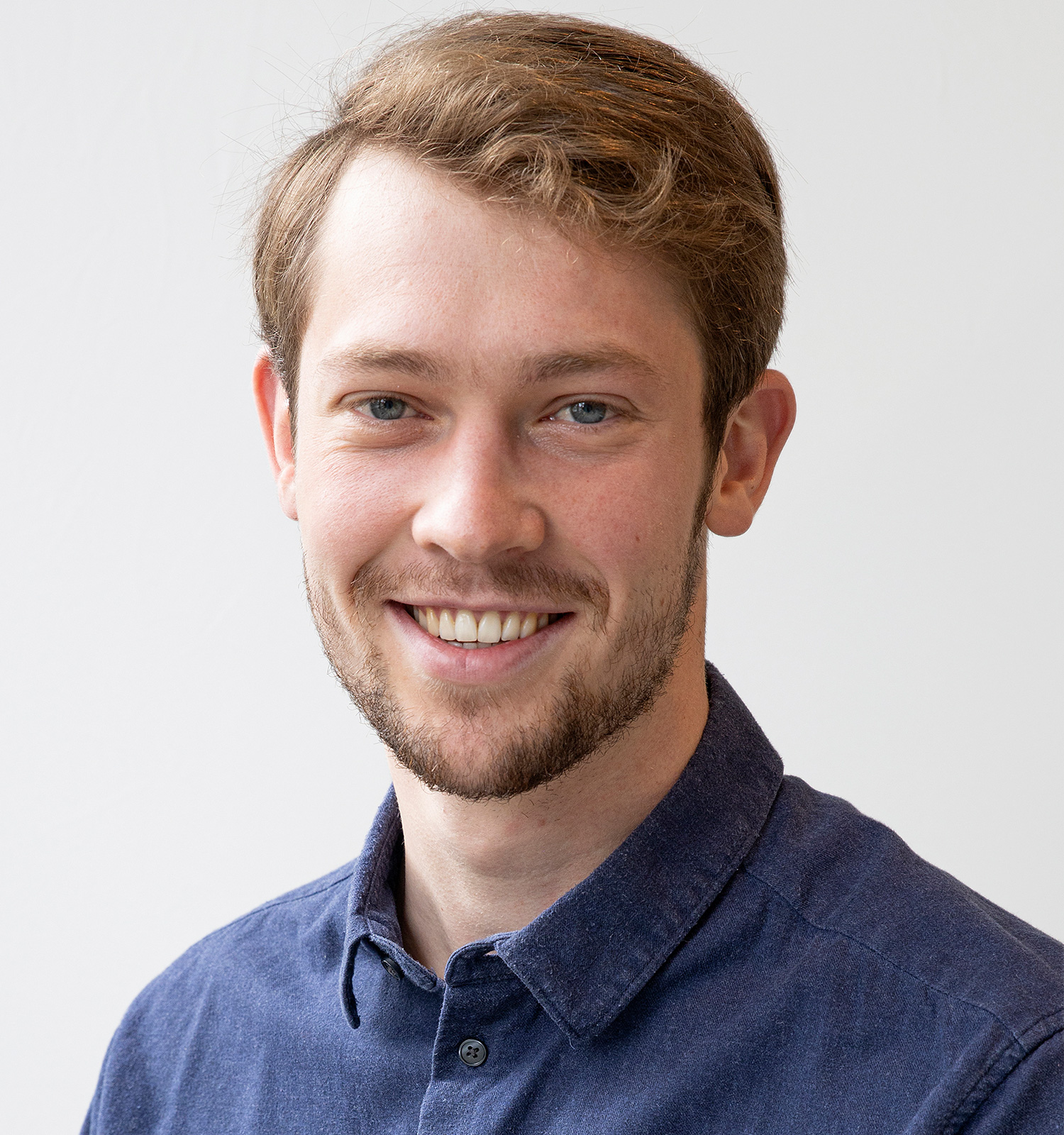
Law student Stephan Verhulst (24, UUinActie) spends most of his time (outside of his studies) on music. “I’m a member of student choir USCantorij, and I play guitar,” he says. He’s also a reservist with the Army, and he’s a referee for hockey games.
He’s planned a great deal of changes for his year in the University Council. “The UU is hierarchical, undemocratic, bureaucratic, and is run like a company. It would be more democratic to elect the members of the Executive Board and other administrators, for example. The UUinActie logo – an upside-down McDonald’s logo – is there to make a point. We shouldn’t be a competitive degree factory, but a democratic community of values. And we need to get rid of financial competitiveness between faculties.”
If Verhulst lets himself dream, he’d see himself as minister of Education in twenty years – one that spends half a day a week teaching social studies. The best thing about the UU, he says, are the ‘dedicated and wonderful teachers’.
If he had to choose between ‘polderen’ and activism, Verhulst would call himself a true activist. “I have to be, since we’re not being taken seriously by the university board. That’s not surprising, because the University Council has had far fewer powers since the ‘90s. UUinActie wants to correct that, because otherwise, we’re not much more than a meeting club.”
You can wake Verhulst in the middle of the night for… “A fire. Happily.” His guilty pleasure is folk singer Rinus’ music: “An entertaining distraction from complicated choir music.”
We need to get rid of financial competitiveness between faculties.
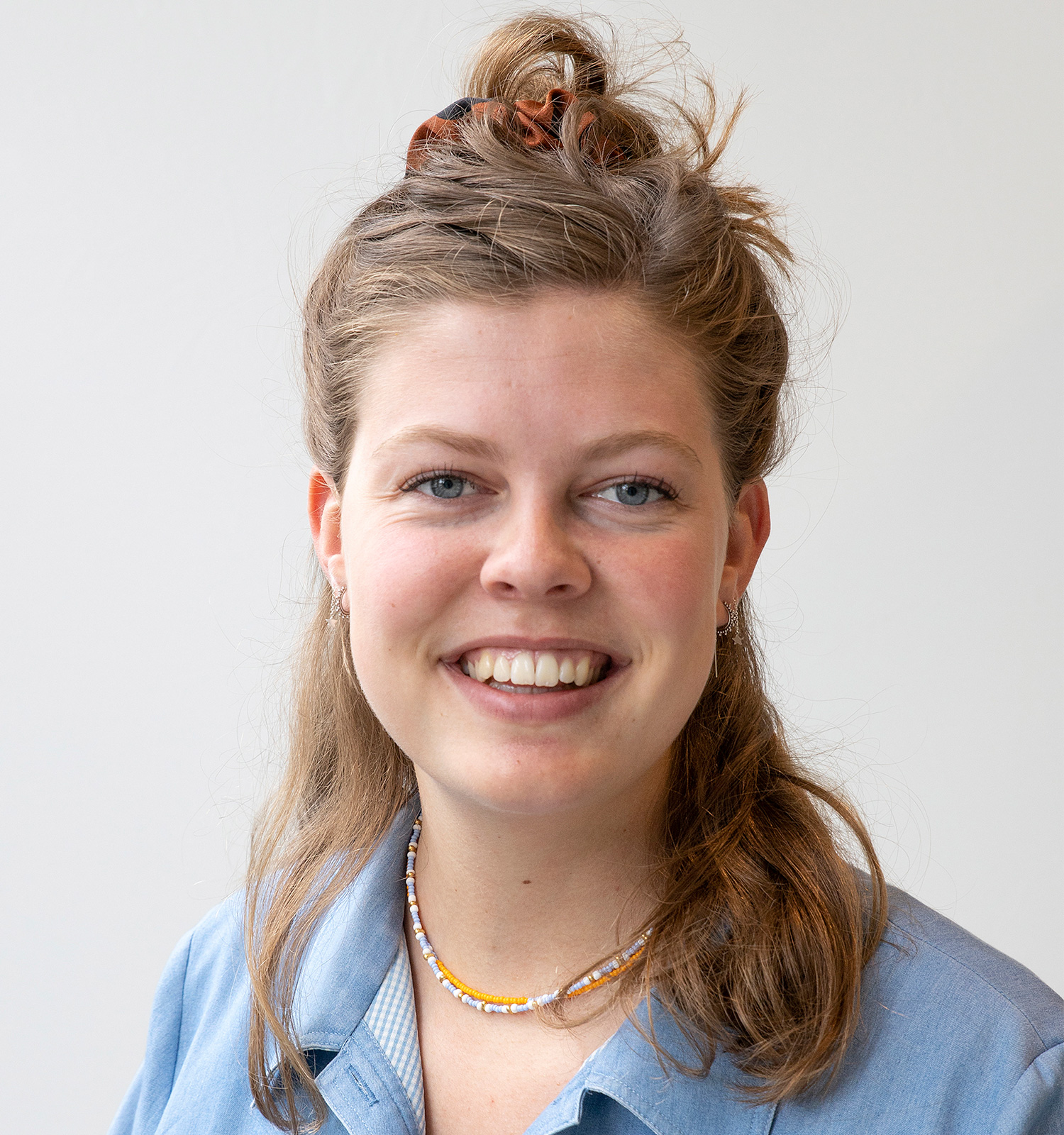
Romy van Wijk (20, PvdUS) is also studying Law. In twenty years, she hopes to have a job that gives her a lot of satisfaction and joy. “But I have no idea what, yet. Perhaps something in succession law, or family law.” She grew up near Den Bosch, and is a member of student association Veritas. Life outside of her studies is filled to the brink with social activities – as far as that’s possible right now. She also does windsurfing and sailing.
In the University Council, she’ll focus on digitisation. “It’s a super relevant topic. I’ll focus on the possibilities to safeguard the quality of higher education, now that the majority of classes – at least in the first semester of this year – is held online, because of the coronavirus. Aside from that, I want to look at which digital developments we can keep using ‘after corona’, for instance with regards to online meetings and online study environments.”
Van Wijk says the most beautiful part of Utrecht is the Twijnstraat, with its wharfs. She also loves the University Hall – as long as she doesn’t have to cycle there in the rain: she hates that. She’d prefer to stay home then, watching shows like Temptation Island, Ex on the Beach, or The Bachelorette. “Shows like those are my guilty pleasure. I always watch them with my housemates; it’s wonderful to keep a running commentary on everyone.”
I want to look at which digital developments we can keep using ‘after corona’.
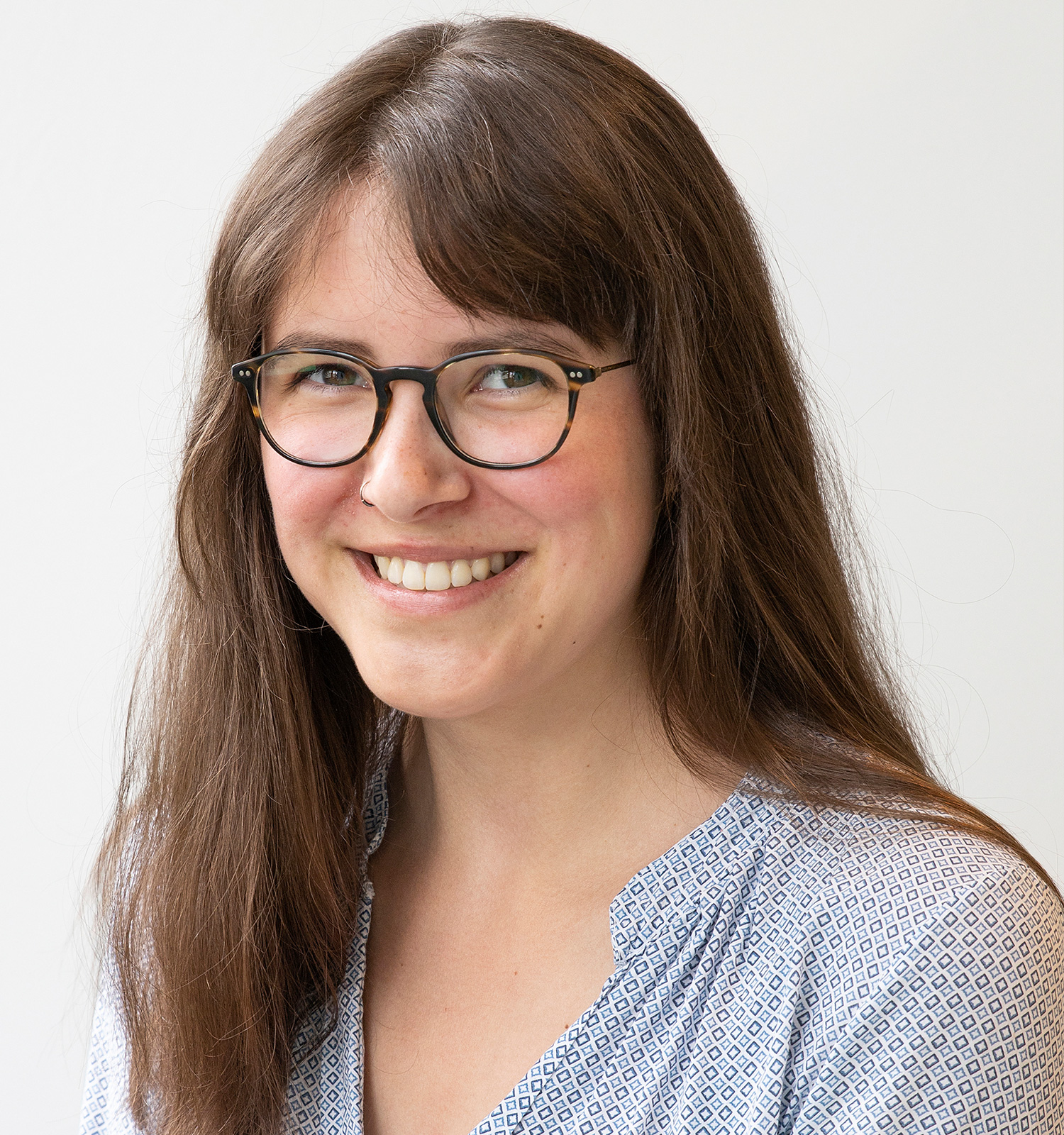
The secret talent of Loes van der Woerd (19, UUinActie) is that she can sing along to every word of the Grease soundtrack. She’s also surprisingly competitive in karaoke and Just Dance. Those aren’t the only things she occupies herself with, however: she’s a student of Social Geography and Planning, is active for study association Vugs, and works in education and for the National Youth Debate organised by the National Youth Council (NJR).
As University Council member, she wants to focus on making the UU ‘more inclusive and aware’. She also cares a lot about the climate, and wants to take a critical look at the existing protocols and administration structures at the UU: “At the moment, students and teachers have to jump through all sorts of complicated hierarchical hoops just to get a disability contract, or for example to report harassment. That’s definitely not what students and employees need in those times!”
Van der Woerdt thinks an activist approach is necessary in co-determination: “Although you often hear that ‘polderen’ is ingrained in Dutch culture, it’s still all too often the activists who were the catalysts for great change.” Co-determination isn’t new for her. In secondary school, she spent six years in the student council; she was active for the municipality of Houten; she’s in the Advisory Council for Vugs, and is now helping young people make their voices heard in the government through the National Youth Debate.
You can wake Van der Woerdt up at any time for baklava or vegan pastéis de nata. Her favourite spots in Utreht are ‘t Oude Pothuys and the Juliana Park. She doesn’t much like the ‘long, ugly road through Kanaleneiland’ (where she lives), all the ‘ugly buildings in De Uithof’ (“Especially the Bologna!”) and last but not least: “the curb of the Viebrug pavement, over which I tripped once.”
I want to take a critical look at the existing protocols and administration structures at the UU.